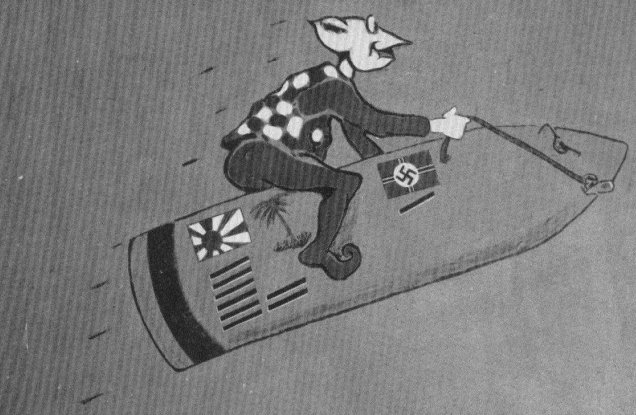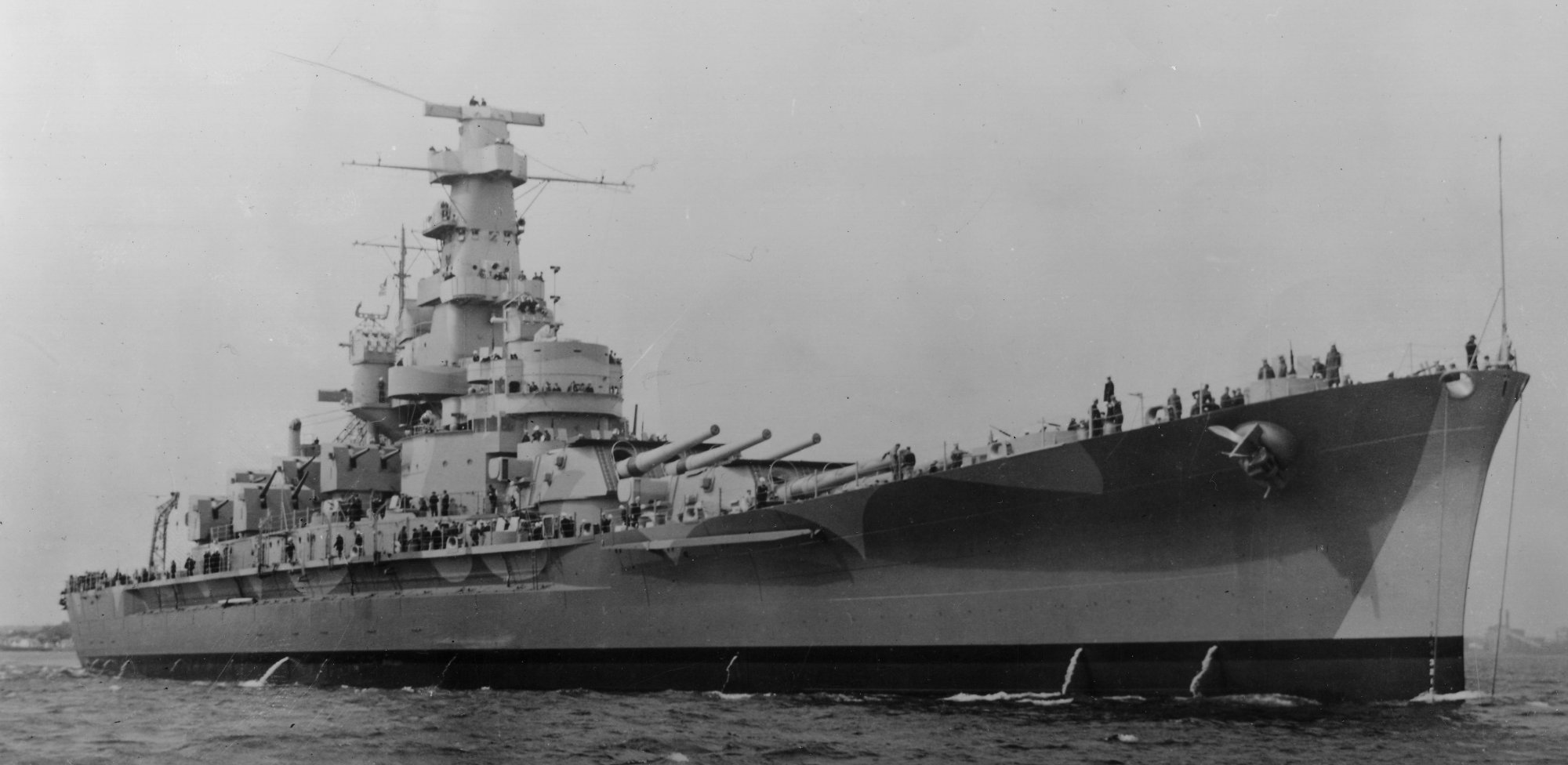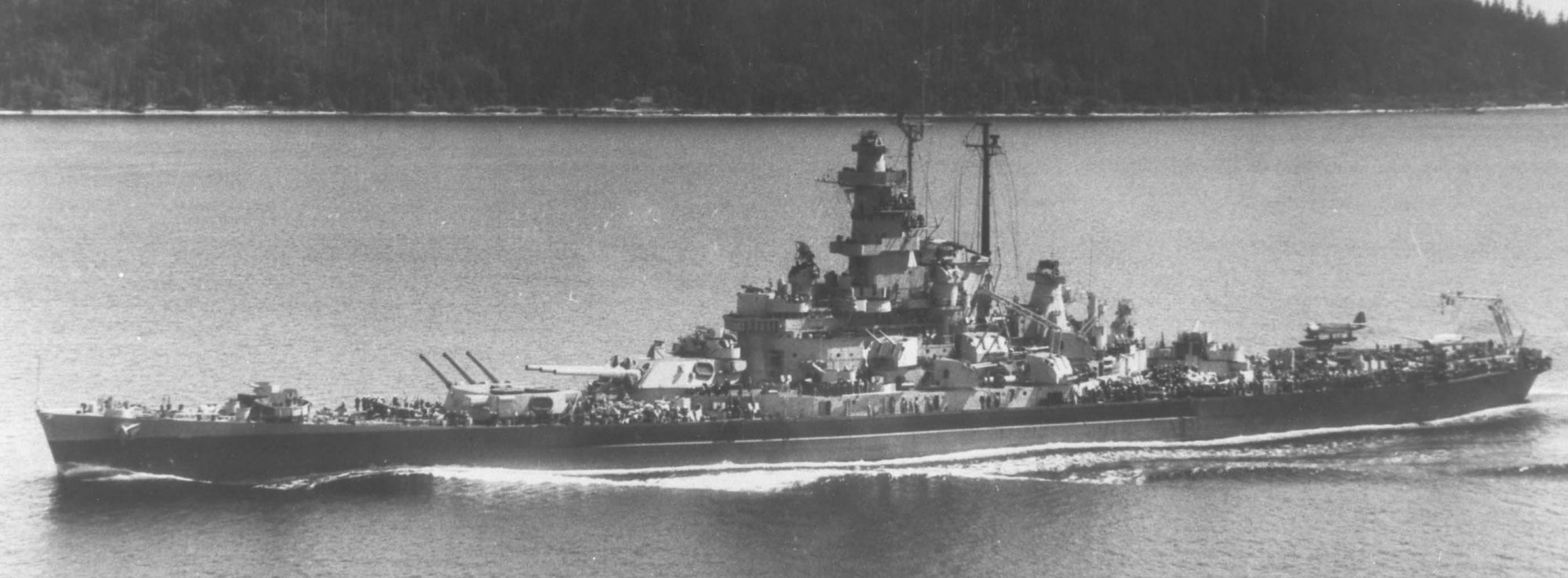
U.S.S. Massachusetts
BB59 "Big Mamie"
This page still under construction
| The Ship, (a brief history) | |||||||||||||||||||||||
| Known as Big Mamie to her crew, the U.S.S. Massachusetts was the second ship of the South Dakota class battleships. (South Dakota, Massachusetts, Indiana and Alabama) After commissioning, Massachusetts was assigned to the Atlantic Fleet where she took part in the Allied landings in North Africa (Operation Torch).
During this operation, Massachusetts engaged and successfully crippled the French Battleship Jean Bart. Massachusetts then proceeded to target smaller French vessels and bomb shore installations. After firing close to her entire compliment of 16" shells, Massachusetts returned to the United States to prepare for Duty in the Pacific. After a brief overhaul, Massachusetts left for the Pacific, arriving in New Caledonia in March, 1943 and spent the next few months protecting the convoy routes and supporting the Solomon Islands operations.
In January 1944, Massachusetts bombarded Kwajalein then covered the landings there on 1 February. From there Massachusetts supported the Carrier Raid on on Japanese installations and shipping in Truk Lagoon, followed raids on Saipan, Tinian, and Guam. Massachusetts then took part in the attack on the Caroline Islands in late March and participated in the landings at Hollandia in April. Massachusetts shelled Ponape Island in the Caoline Islads before returning to Puget Sound for an overhaul and to have her 16" gun barrels relined. Upon completion of repairs, Massachusetts left Ppuget Sound and returned to operations in the Pacific. In August, she supported the landings in Leyte Gulf and participated in a fleet strike against Okinawa on October 10th. the screened Allied forces while they struck Formosa from October 12-14.
During January 1945, she sailed as part of TF 38, which struck Formosa and supported the landing at Lingayen Gulf. During that time she turned into the South China Sea, where TF 38 destroyed shipping from Saigon to Hong Kong; the operation concluded with air strikes on Formosa and Okinawa From 10 February to 3 March, with the 5th Fleet, Massachusetts guarded carriers during raids on Honshu. Her group also struck Iwo Jima by air for the invasion of that island. On 17 March, the carriers launched strikes against Kyushu while Massachusetts fired in repelling enemy attacks, splashing several planes. Seven days later she bombarded Okinawa. She spent most of April fighting off air attacks, while engaged in the operations at Okinawa, returning to the area in June, when she passed through the eye of a typhoon with 100-knot winds 5 June. She bombarded Minami Daito Jima in the Ryukyus 10 June. Massachusetts sailed 1 July from Leyte Gulf to join the 3d Fleet’s final offensive against Japan. After guarding carriers launching strikes against Tokyo, she shelled Kamaishi, Honshu, 14 July, thus hitting Japan’s second largest iron and steel center. Two weeks later she bombarded the industrial complex at Hamamatsu, returning to blast Kamaishi 9 August. It was here that Massachusetts fired what was probably the last 16-inch shell fired in combat in World War II.
Massachusetts received 11 battle stars for World War II service as a result of her participation in operations in North Africa, the Gilbert, Carolina, and Marshall Islands campaigns, as well as operations during the battles for Leyte, Luzon, Iwo Jima, and Okinawa.
|
| ||||||||||||||||||||||
| The Kit
(section under construction while I look for my notes & Photos) |
|
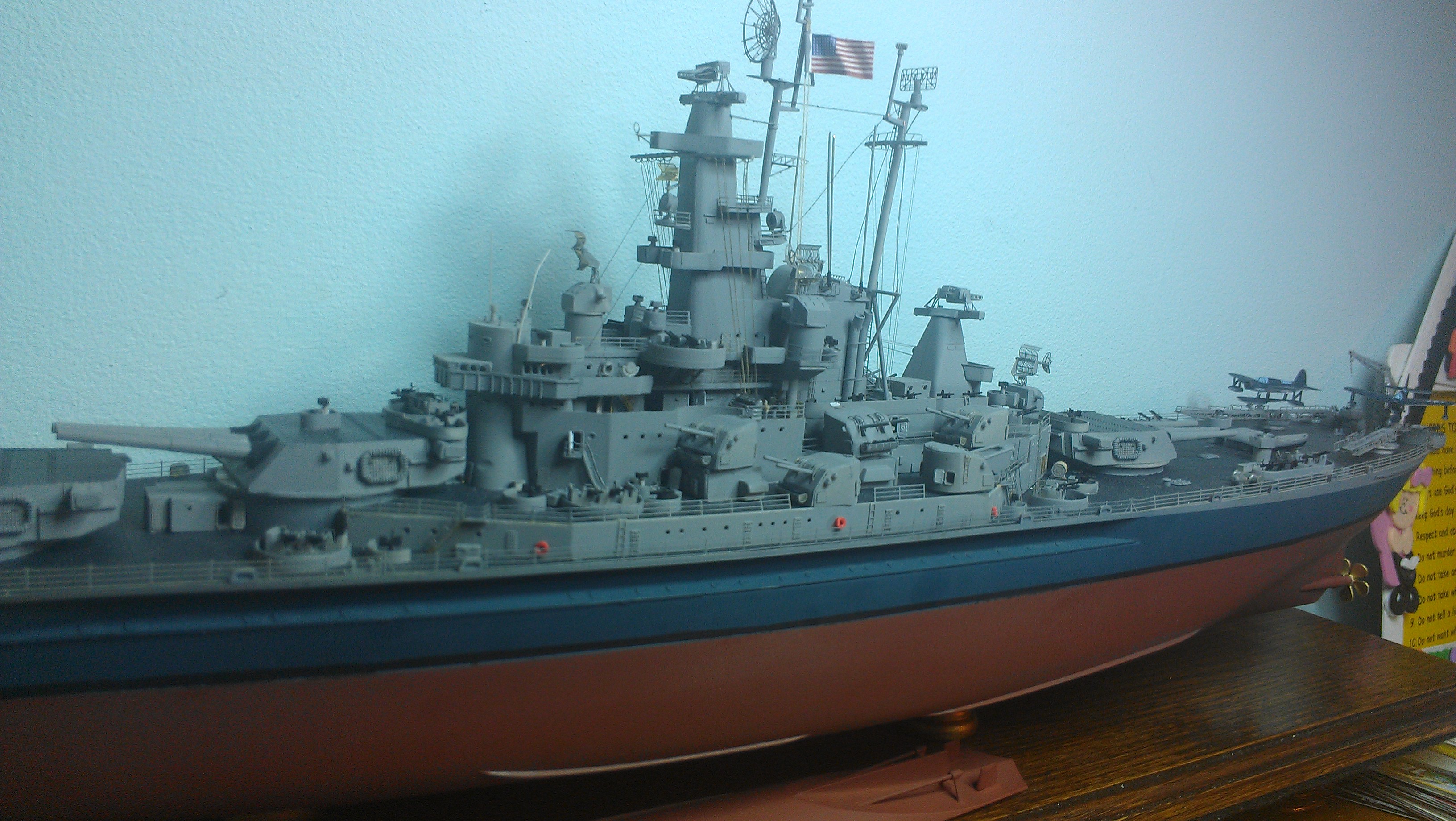
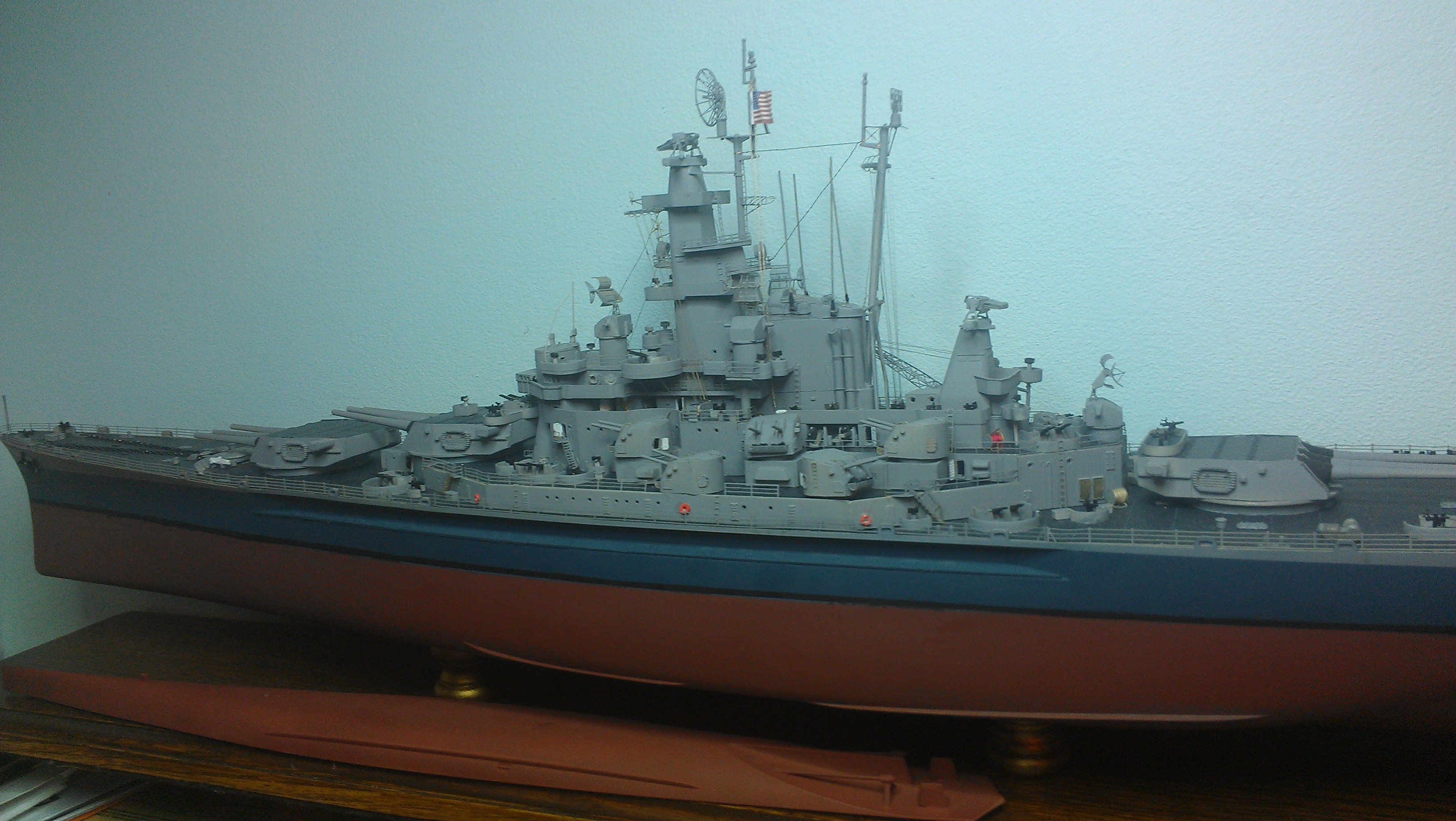

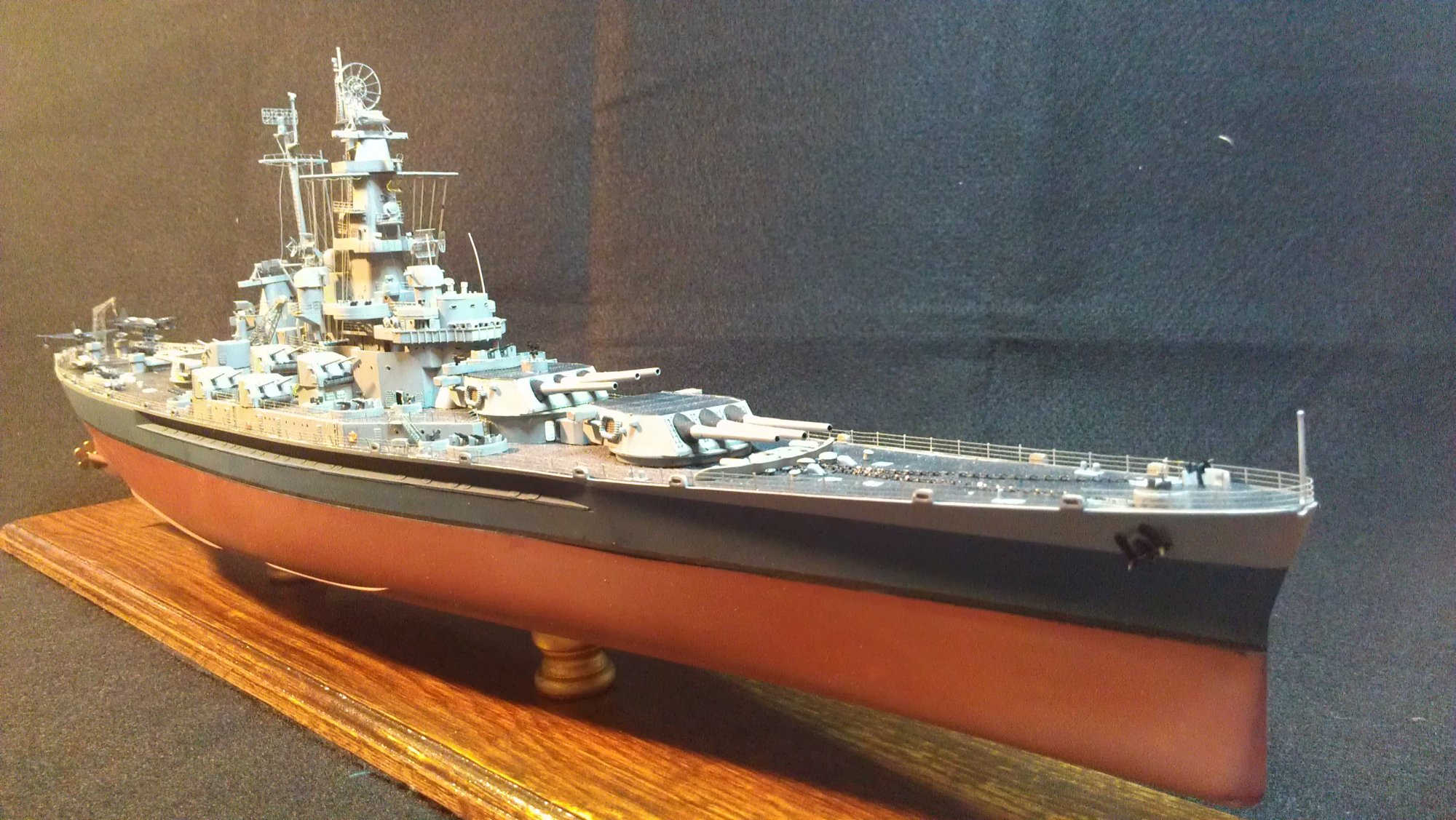
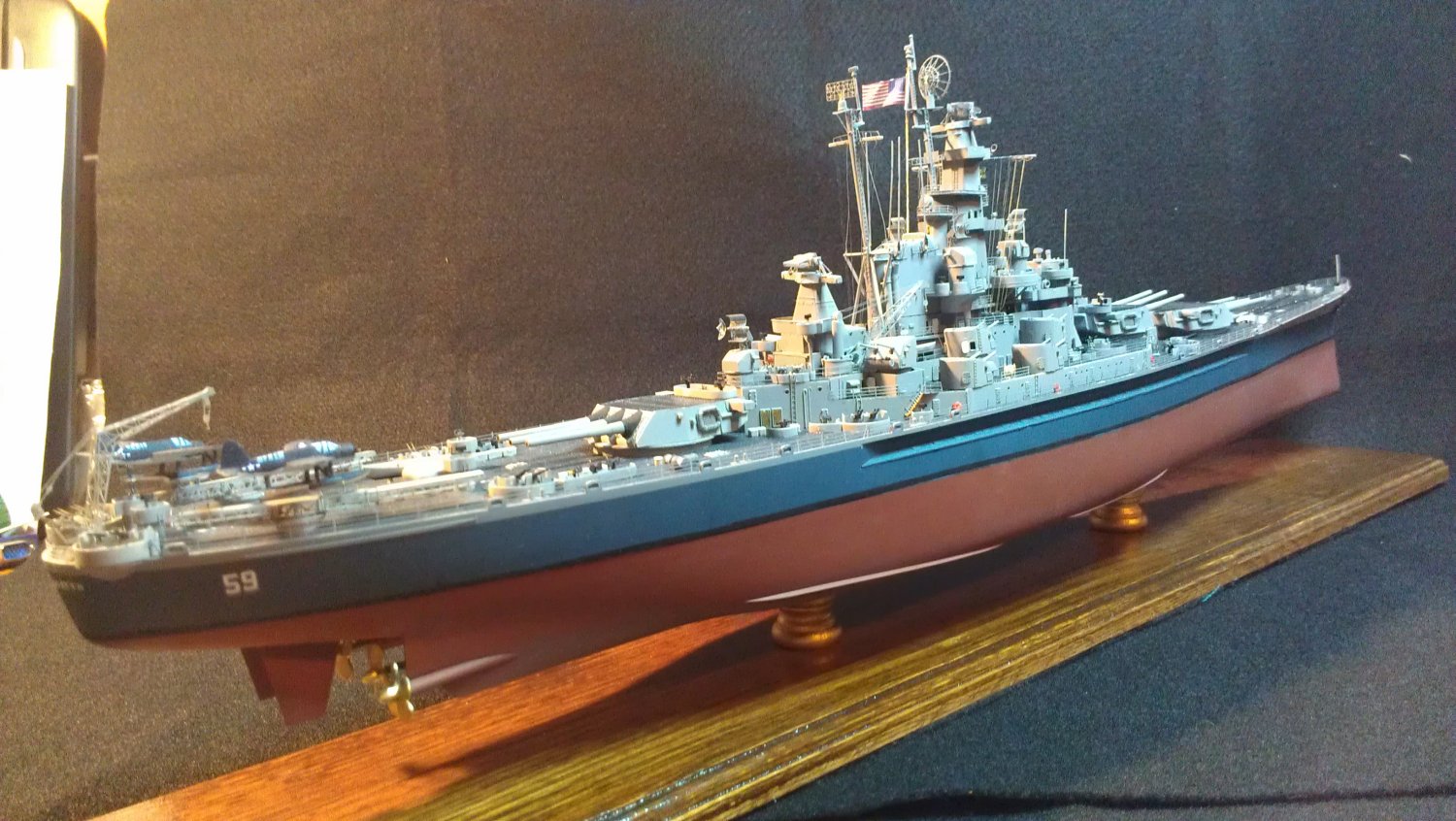
|
Research material..
NavSource. there are many good photographs of this class
